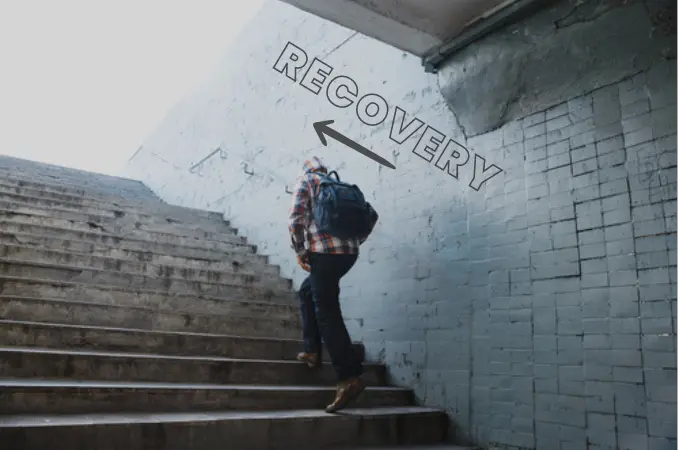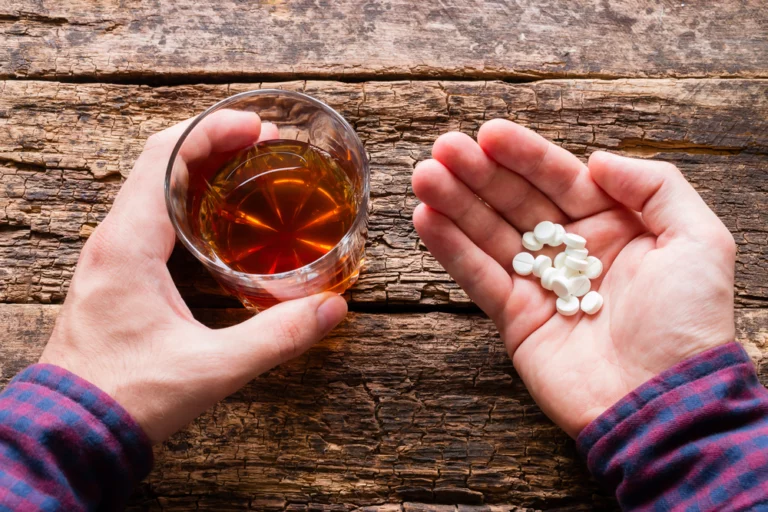Rebuilding your life after addiction is a transformative and empowering journey that requires commitment, dedication, and a willingness to improve your life. Returning to society after addiction recovery can be overwhelming and even intimidating. Properly reintegrating back into everyday life can take years. Fortunately, we have some of the top ways to help you in your recovery journey.
This article will cover the top 8 ways to rebuild your life after addiction. It’s important to note that each individual’s journey is different, and understanding what methods work best for you will lead you to life-long sobriety.

How Can You Rebuild Your Life After Addiction?
You may wonder, ‘How exactly can I rebuild my life?’ While there is many different answers to this, many recovering addicts first begin by attending an addiction treatment center. This part of the recovery process typically involves medical detox, attending an inpatient or outpatient recovery program, and preparing aftercare services.
As you progress through the treatment, preparing for life after addiction is crucial. There are several strategies you can begin to rebuild your life. Here are the top 8 strategies:
Take Things One Day at a Time
It’s common for those in recovery to want to jump right back into the world. However, many individuals realize they are not fully ready and may feel intimidated or overwhelmed. Building a new life takes time, and it’s essential to have patience as things will not go back to before the substance abuse overnight. Depending on the substance used, how long you used drugs, and your lifestyle outside of addiction, it can take up to 2 years for the brain to return to normal. So, don’t be discouraged and keep taking things slowly and one day at a time so you can achieve sobriety.
Read more about the benefits of being sober here.
Repair Past Relationships
During active addiction, you may have damaged relationships with family members or loved ones, and one step in the healing process is to repair these relationships. It may seem difficult or near impossible to do so, but address your wrongdoings and ask for forgiveness. This can take a lot of courage but can help heal your inner self and lead to regaining the respect and trust of those you love within your life after addiction. Maintaining healthy relationships can help prevent relapses and provide a support network for you to rely on.
Practice Self-Care
On top of maintaining your relationships with others and your life after addiction, it’s vital to take care of yourself. Prioritizing self-care and your well-being leads to a healthy lifestyle and allows you to reduce stress in your life. Finding activities that bring you pleasure and that are not drugs is crucial in living a sober life. Some ways to practice self-care are:
- Journaling
- Meditation
- Painting
- Reading
Discover New Hobbies
During the days of substance abuse, the focus of everyday life likely revolved around addiction. Even when substance abuse wasn’t occurring, thoughts about the next opportunity to use may have overshadowed other activities. Now that you have embarked on a journey of sobriety in your life after addiction, it’s essential to consider how you will occupy your time.
Substance abuse was a big part of your life and has now created a void in your life. However, this is the best moment to fill that void with productive, engaging, and enjoyable activities in your life after addiction. Discovering new hobbies is an exciting way to battle addiction and improve your mental health. Some hobbies to consider are:
- Volunteer work
- Hiking
- Yoga
- Gardening

Establish Healthy Routines
Committing to a drug-free lifestyle can be difficult, so it’s important to establish healthy routines that do not allow time for drug abuse in your life after addiction. By implementing structured and positive habits into your daily life, you can create a stable foundation that supports your physical and emotional well-being.
Establishing healthy routines takes time and effort since it can take around 66 days for a behavior to become a habit. You can create healthy routines by starting small and gradually incorporating new habits into your life. Some of the best habits to incorporate into a healthy routine are eating a healthy diet, maintaining a proper sleep schedule, and exercising regularly.
Set Realistic Goals
When addiction consumes your life, it’s common to lose sight of your goals. However, now that you have embarked on a drug-free journey and are enjoying your life after addiction, it’s an opportunity to rediscover and define your personal and professional goals. Setting goals is an important step of recovery as it gives motivation and milestones to look forward to, which can be helpful when you struggle to stay sober. Taking the necessary time to write down your goals and stick with them is especially important in early recovery.
Join Support Groups
Joining support groups provides a safe and supportive environment with your peers. Common support groups are Alcoholics Anonymous (AA) or Narcotics Anonymous (NA). These groups are spaces where people can come together to share their struggles and successes and provide motivation and accountability. Many individuals have found sober friends and a support system through these groups.
Pursue Education or Career Development
Addiction can take over your life, resulting in neglecting to build personal skills and provide a future for yourself. When rebuilding your life after addiction, you may decide to pursue an education or develop your career. By acquiring new knowledge, skills, and qualifications, individuals in recovery can enhance their self-esteem and regain a sense of purpose and accomplishment. It also opens doors to new opportunities and expands their potential for success.

Preventing Relapse After Addiction
While relapse is a natural and expected part of recovering from addiction, it’s important to prevent relapses from happening as they may lead you back down the path of addiction. The previously stated strategies for rebuilding your life after addiction are great ways to help prevent relapses. On top of those strategies, some other ways to prevent relapses are:
- Develop coping strategies to manage cravings
- Work alongside a therapist to create a relapse prevention plan
- Attend ongoing therapy sessions
- Recognize the progress you’ve made so far
Read more about how to find addiction treatment options near you here.
Addiction Treatment Services at Knoxville Recovery Center
Suffering from substance use disorder is a challenging and complex disease to face on your own. It can also be difficult to find the right addiction treatment center to ensure you receive the treatment you deserve. Fortunately, there are treatment centers out there that prioritize our clients above all else.
At Knoxville Recovery Center, we offer mental health and addiction treatment programs that focus on providing holistic, individualized, and evidence-based treatment. Through various therapies, nutritional education programs, and mindfulness exercises, we not only prepare our clients for life after treatment ends but to thrive.
If you or a loved one are struggling with substance abuse, contact us or call us today to learn more about our programs.








